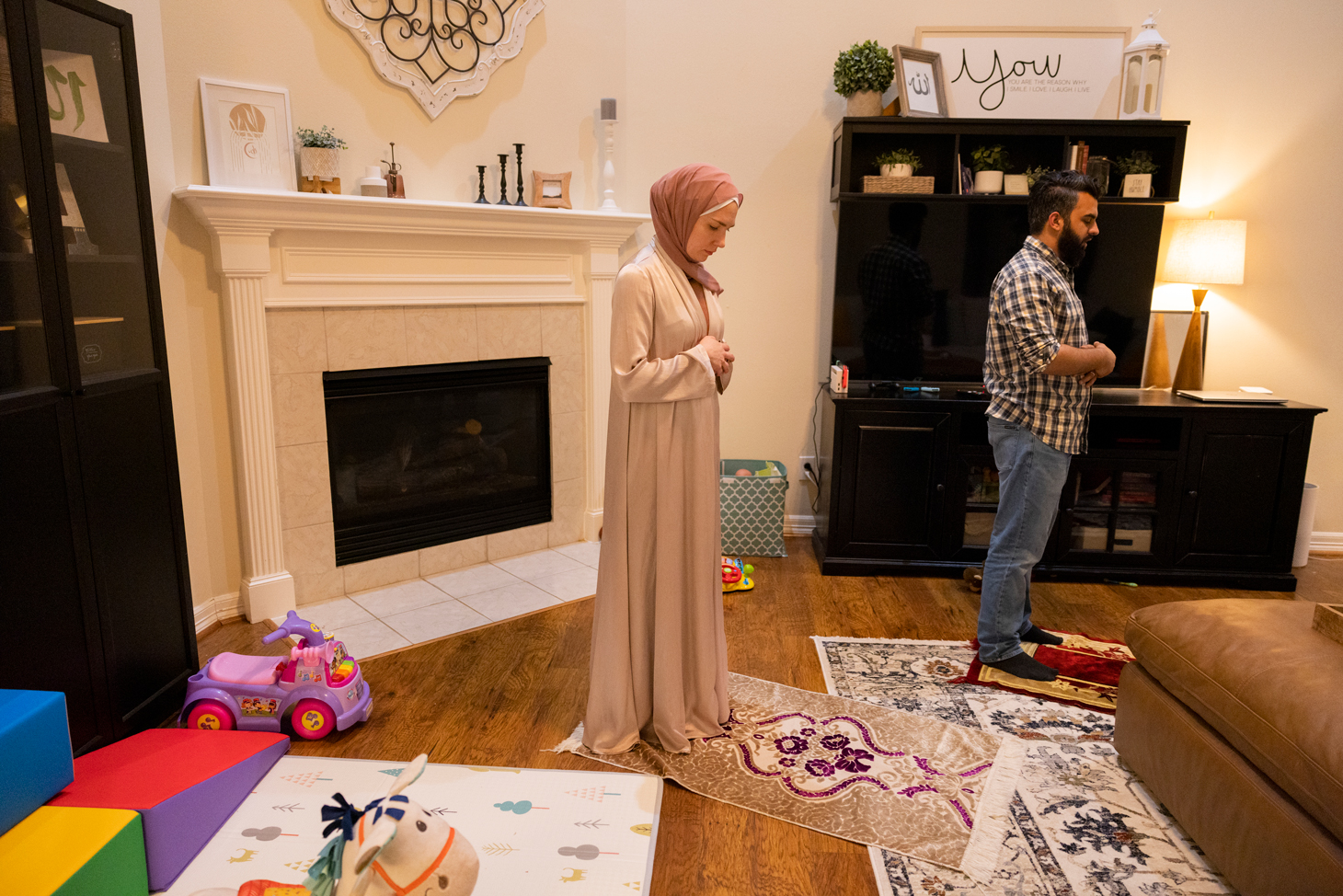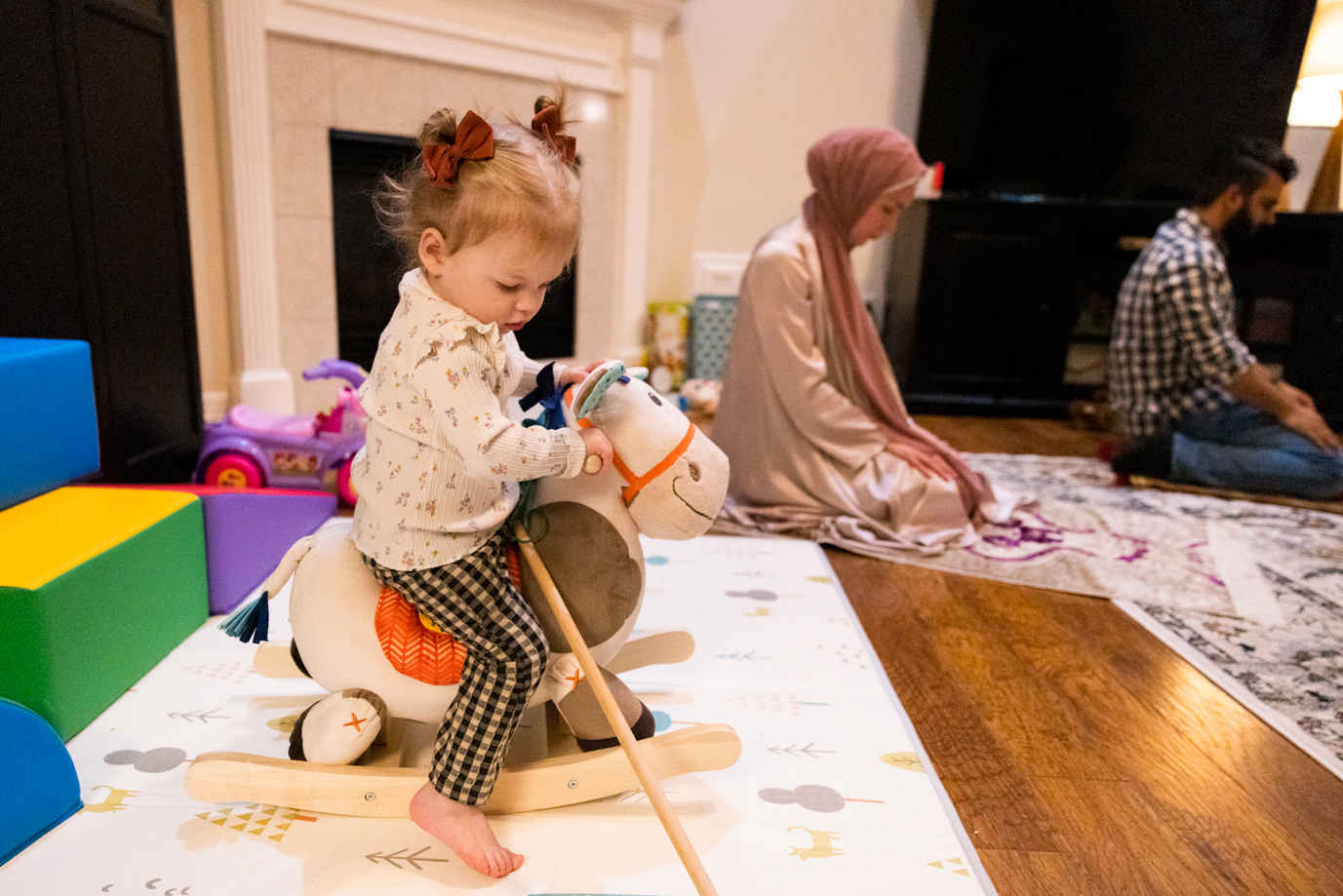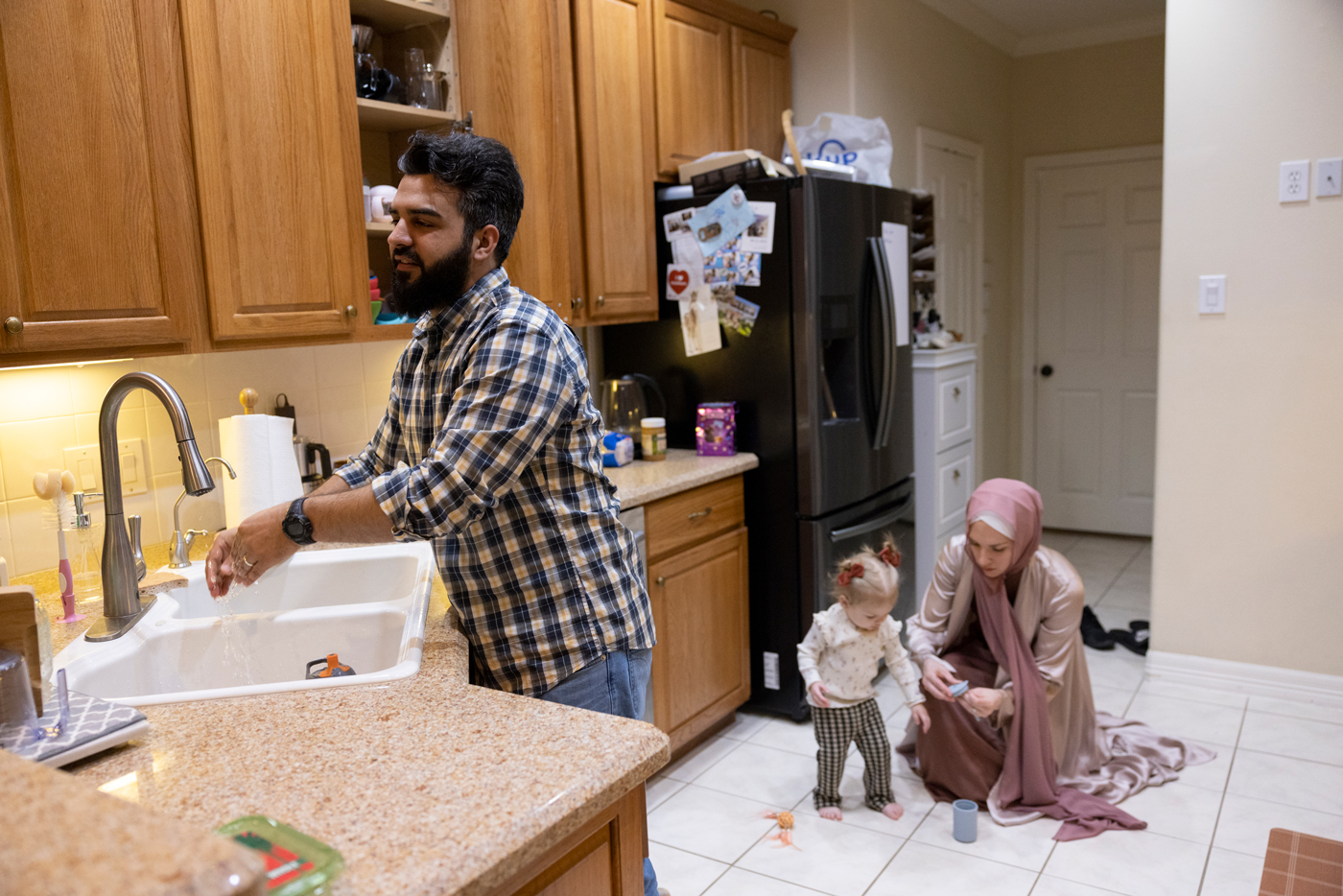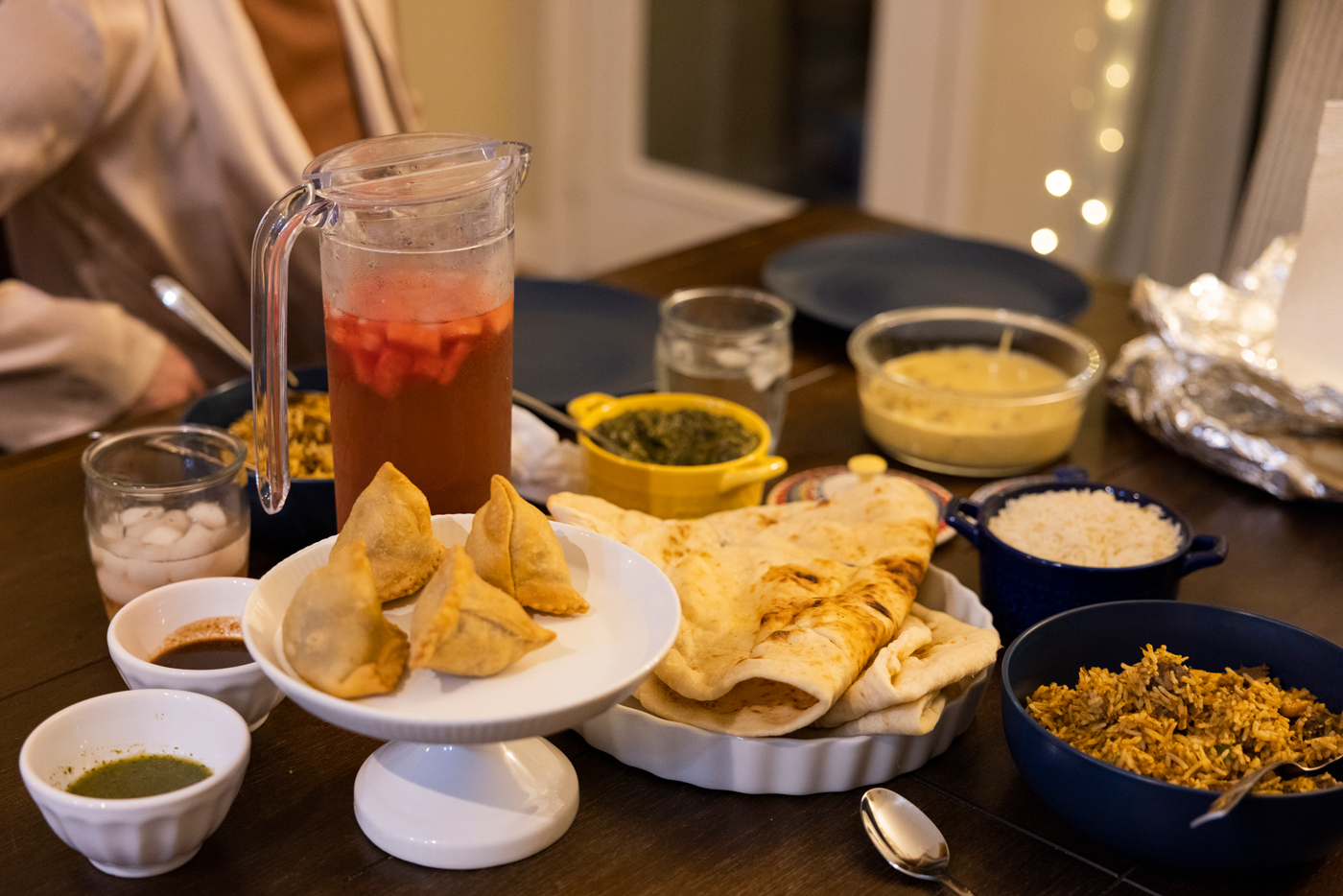Victoria Pool-Ali and I are in the middle of a meaningful conversation about motherhood and religion when the clock ticks forward by one minute. It’s 7:42 p.m.
“Hey,” her husband, Adam Ali, says from across the Pasadena couple’s kitchen.
“I don’t mean to interrupt,” he says politely. “But it’s time.”
Meaningful as our conversation was, I’m thrilled that Adam has interrupted. I’ve been waiting all day for this moment.
He hands me a glass of ice water, and we walk to the dining room table where a small bowl of dates has been set out. The sun has officially set, and it’s time to break fast.
It’s Tuesday, April 4, about halfway through Ramadan, the holy month in which nearly 2 billion Muslims across the world fast from sunup to sundown to bring them closer to God.
Adam and Victoria have offered to host me for the evening, sharing their faith with a reporter they’ve never met before over iftar – the fast-breaking meal we’ll get to in a few moments, after the couple shifts to the living room for their evening prayers.
“Feel free to eat as much as you want while we pray,” Victoria tells me as she walks into the living room, the couple’s 19-month-old daughter, Norah, toddling behind them, clutching a green-bristled play broom in her chubby cherub hands.
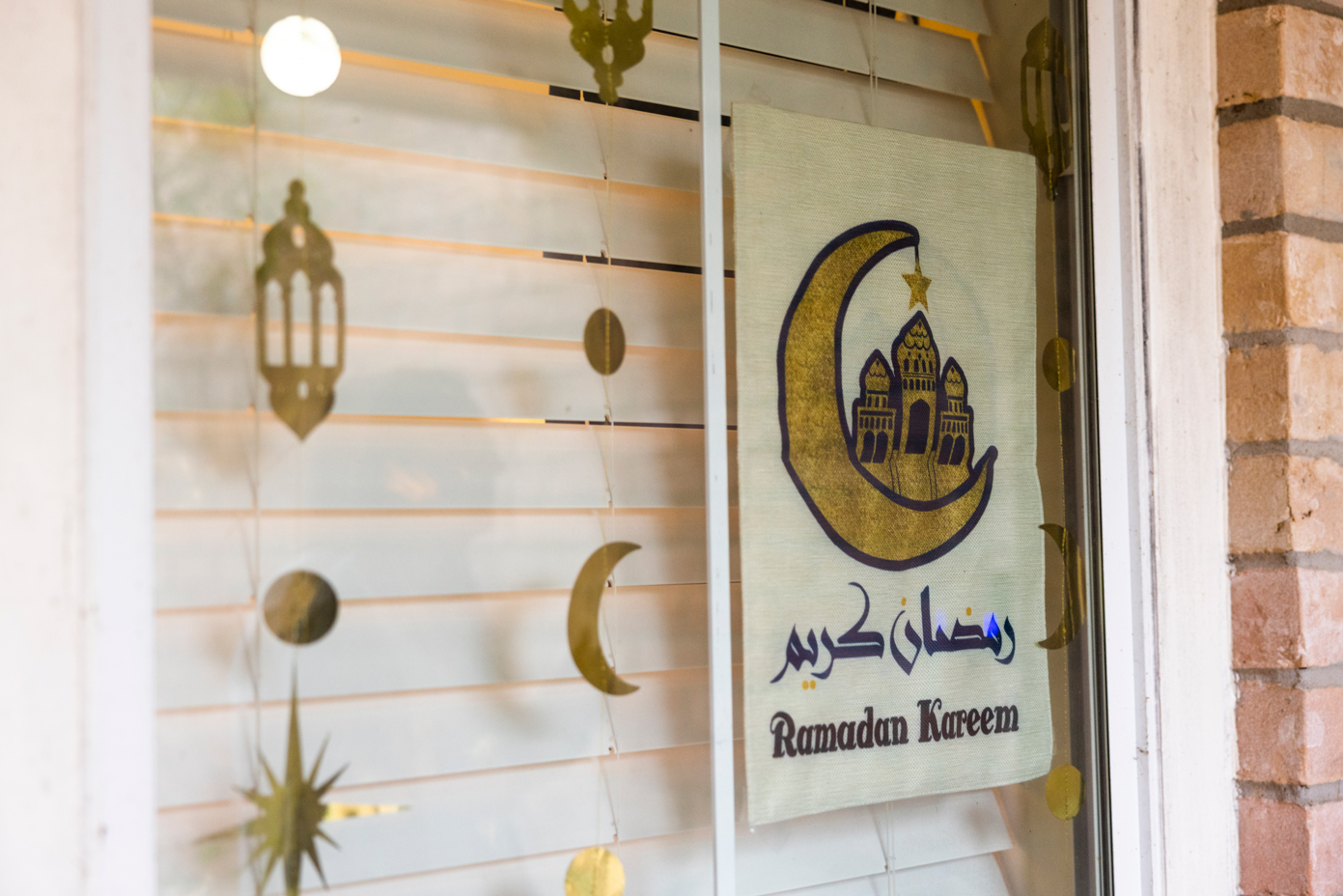
Victoria and her husband are two of an estimated 123,256 Muslims living in the Houston area, according to figures from the 2020 U.S. Religion Census, a decennial survey conducted by the Association of Statisticians of American Religious Bodies. That’s more people than the entire city of Sugar Land.
To them, this is night 13 of 30 of fasting. To me, it’s the first of one.
I began the day earlier than usual, waking ahead of the baby to scarf down a plate of eggs and chug a cup of coffee for suhoor – or the first meal of the day, which must be completed by sunrise at 7:08 a.m. (It didn’t go quite as planned. The baby heard me in the kitchen, and before I knew it, I was sharing my eggs.)
In some ways, fasting was much easier than I anticipated: I scheduled enough meetings throughout the day that I bulldozed through my hunger pangs. In other ways, it was harder: During one of those meetings, at a coffee shop, my throat burned with thirst.
By the time Adam handed me a novelty Harry Potter glass of iced water (“every family has one!” we joked), I imagined my tongue felt like a cat’s – sandpapery and scratchy. “It gets easier a few days in,” says Adam.
By this point in the fast, his body is used to going without. He’s buoyant as he begins dishing rice and saag paneer onto plates at the table after their prayers, pointing out which sauces he thinks I’d want to ladle onto my samosas.
I dig in, ripping naan to mop up my curry, careful not to stuff myself after 12 hours on an empty belly. Between bites, I sip that luxurious iced water and turn to Victoria. “Tell me about Ramadan and what it means to you.”
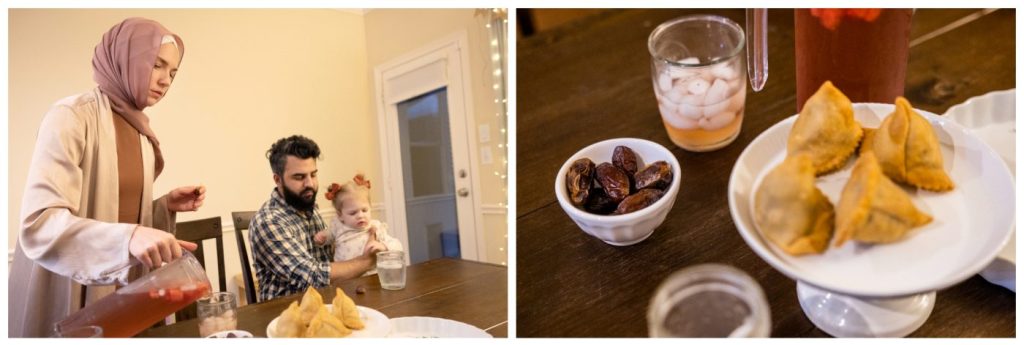
She beams. Victoria – who is not fasting this year since she’s still nursing Norah – converted to Islam six years ago. She talks about her faith as if it’s a best friend.
“It’s just a really exciting time. A really beautiful time,” she says. Every night, after iftar, she and her husband drive to their masjid for prayers. “You’re standing with your Muslim brothers and sisters, shoulder to shoulder, praying, and you all just accomplished this big thing, and you’re doing it over and over and over, every night. And you feel like, ‘Oh my gosh, this is so much.’ But you’re also just so happy.”
Ramadan is the ninth month of the Islamic calendar – the time during which, according to Islam, the Quran was revealed to the Prophet Muhammad. It’s marked with fasting – the fourth pillar of the Islamic faith – for several reasons. Victoria runs through them, her smile growing with each note until I realize I am beaming alongside her. Her excitement is contagious in that way.
“The main thing is to reconnect with God,” she says as she offers Norah a sip of her water. (Norah sticks a hand in, the way toddlers do, and the glass is pushed toward the center of the table as her mother redirects her behavior.) “But God has made it so that not only will we reconnect with him, but we’ll also have more appreciation once we’ve gone through it. More appreciation for things that we don’t have, or that we have and other people don’t have.”
Her husband chimes in. “We joke,” he says, “all we have to do for this water is wave our hand in front of the refrigerator. But there are so many people who don’t have access to clean, running water.”
Adam says going without water during the daylight hours, when he and Victoria work at the family's marketing company, helps him better understand the suffering across the world — and the mercy.
Victoria focuses on the mercies and the beautiful things. It feels like she utters Alhamdulillah after every sentence, as though it’s her preferred punctuation – an exclamation point that means “praise be to God.”
“I’m very grateful, and feel very blessed to be where I am. And I know that we have our struggles. There are people that still don’t like me. I’m going to get it more than him, because I’m a walking representation. But I want to be a representation,” she says, nodding to the hijab she’s worn for the past four years.
“And again, another thing that comes with Ramadan is reflection on these things that you don’t think about. So me just simply getting to wear what I would like to wear and practice my religion, that’s easy for me. Alhamdulillah, that it’s easy for me. But for some people, it’s not so easy.”
Houston, Adam says, has really bloomed in the past few years, in terms of Muslim visibility.
“I was born Muslim, but like 15 years ago, you didn’t have a halal store on every corner,” he says. “You didn’t have things that accommodated Muslims in every community.”
In the past couple of years, Victoria says she has also noted “a massive change” in people’s reaction to her hijab.
“You know, on social media, hijabis is becoming a normal thing, and people are talking about it a lot more,” she says. “I think it’s just kind of everywhere, as it should be. It should be looked at as something beautiful, something you want to learn about because it’s beautiful.”
I nod my head and take another bite of my samosa, glancing at the handful of flowers Norah had picked out for me – a stranger – earlier in the day, tucked into my purse. And I wish more people could be at this dinner table right now.
“People should learn about Islam,” she says. “I guarantee, you’ll walk away a better person.”
Share your Houston stories with me. We can start on Twitter, Facebook and Instagram. Or you can email me at [email protected].


